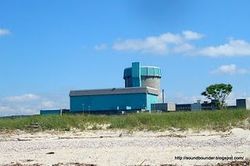 For an entrepreneur interested in renewable energy it's not a level playing field.
For an entrepreneur interested in renewable energy it's not a level playing field.
Some places are just better sites than others. This is partly due to politics but not in the way you think.
It's the politics of 10, 20 and 30 years ago that have made today's differences so stark. Where the environmental movement was strong, where utilities were made to fight hard for every new power source or transmission line, you now have utilities desperate for power, from any quarter, and happy to cooperate with anyone who is going to get them some, the fewer political headaches the better.
Then there are other states that have been run by utility companies. Coal and nuclear power plants are easy to get permitted. Transmission lines can go anywhere, and the neighbors can't really object. Politicians have a "pro-business" attitude.
In these places renewables have an uphill battle, even though the lip service given them by the utilities is strong.
One thing I learned when reading publications utility executives themselves read, like Transmission and Distribution World. Renewable companies and utility companies are talking different types of numbers. Renewable executives talk about megawatts, utility executives about gigawatts. It's this scaling difference that leads the utility guys to not take the "green guys" very seriously. Let me know when you're grown up, they think.
Never mind that gigawatts are made up of megawatts, and megawatts of kilowatts. Never mind that a grid with kilowatt and megawatt production dispersed throughout it is more stable than one based on client (distribution) and server (power plant) technology.
Utilities are mainframes. Renewable energy is a PC. Unfortunately this is 1970.
Still, as I noted, places with a strong environmental movement in the past have utility executives who will listen to a green pitch. So while some politicians are claiming a market for carbon can never work, New York and the states around it have already got one. This is partly because of the decades-long battle over the Shoreham nuclear plant (above), which destroyed the Long Island Lighting Co. I grew up with and replaced it with the Long Island Power Authority, a municipal utility.

The Southern Co., created through a series of mergers culminating in 1949, has always had the legislature here in its pocket. Power was deemed a vital good, a way to encourage industry to relocate, and anything the Southern Co. wanted it got.
That's why we have giant coal-fired power plants like Plant Scherer, or Harllee Branch in Milledgeville (left), and why coal trains rumble by my Atlanta home every day. It's also why Georgia was chosen as the site for the first nuclear plants to be built in the U.S. for decades.
Georgia Power does not need to listen to environmentalists, or green power activists. Yet it pretends to. The company has bought renewable power since 2006, and renewed the tariff this year, agreeing to buy up to 2.5 megawatts of such power every year, from small suppliers.
But look more closely. The prices being offered are sick, as little as 15 cents per kilowatt hour. That power is being packaged as a Green Energy offering for which customers must make a pre-commitment, at high prices. The program lets the company pretend it's green, but the only real green here is the color of money, of profit.
I'm not saying they're bad people down here in Georgia. The Southern Co. is an active member of the Electricity Storage Association, which is working on the problem of storing-and-forwarding utility-sized hunks of electrical power. It's very interested in an outfit called CAES Development, which is building a 10 MW electrical storage facility in eastern Alabama, based on compressed air pumped into a salt dome.
Just note that the company calls this a trial, not just because the technology is relatively new but because the plant is so small. A 10 MW solar facility may be among the biggest in the country, but to a utility company 10 MW is a drop in the bucket.
So the reception you get as a renewable power executive is going to depend a lot on where you are, and don't pay attention to what any utility is telling the press. It's financial weakness that's the strength you best rely on.











Interesting post. Thanks for mentioning the problem with storing and transferring energy created through renewable means. This may be beneficial for those interested in researching solutions.
Interesting post. Thanks for mentioning the problem with storing and transferring energy created through renewable means. This may be beneficial for those interested in researching solutions.
Nature has given us abundant energy in the form of solar power which is never ending and easily available in the form of Sun. It is best renewable energy to reduce the problem of scare resources.
Nature has given us abundant energy in the form of solar power which is never ending and easily available in the form of Sun. It is best renewable energy to reduce the problem of scare resources.
Wow! Amazing thanks for this market…Thanks to nature….since then…nature had it first
Wow! Amazing thanks for this market…Thanks to nature….since then…nature had it first
Hi.. I find your post very interesting and controversial.. Maybe its true that many people or politician are playing around with green energy, and that is very sad. I myself is a solar energy enthusiast. I have this Solar Hot Water System, and I really fin it very beneficial. Solar energy, or other renewable energy is quite abundant around us, I hope those who are in authority will make use of it in a proper way.
Hi.. I find your post very interesting and controversial.. Maybe its true that many people or politician are playing around with green energy, and that is very sad. I myself is a solar energy enthusiast. I have this Solar Hot Water System, and I really fin it very beneficial. Solar energy, or other renewable energy is quite abundant around us, I hope those who are in authority will make use of it in a proper way.
Lol – nice try!
Lol – nice try!